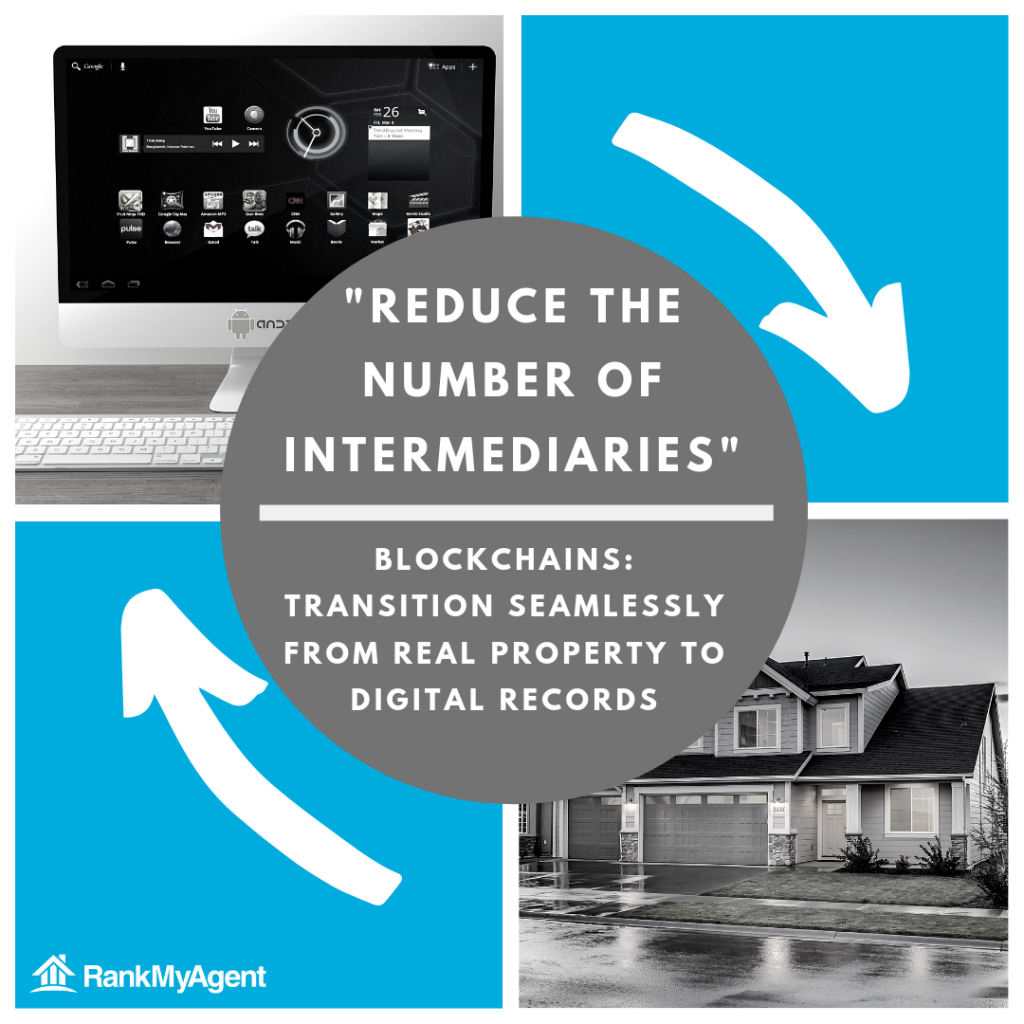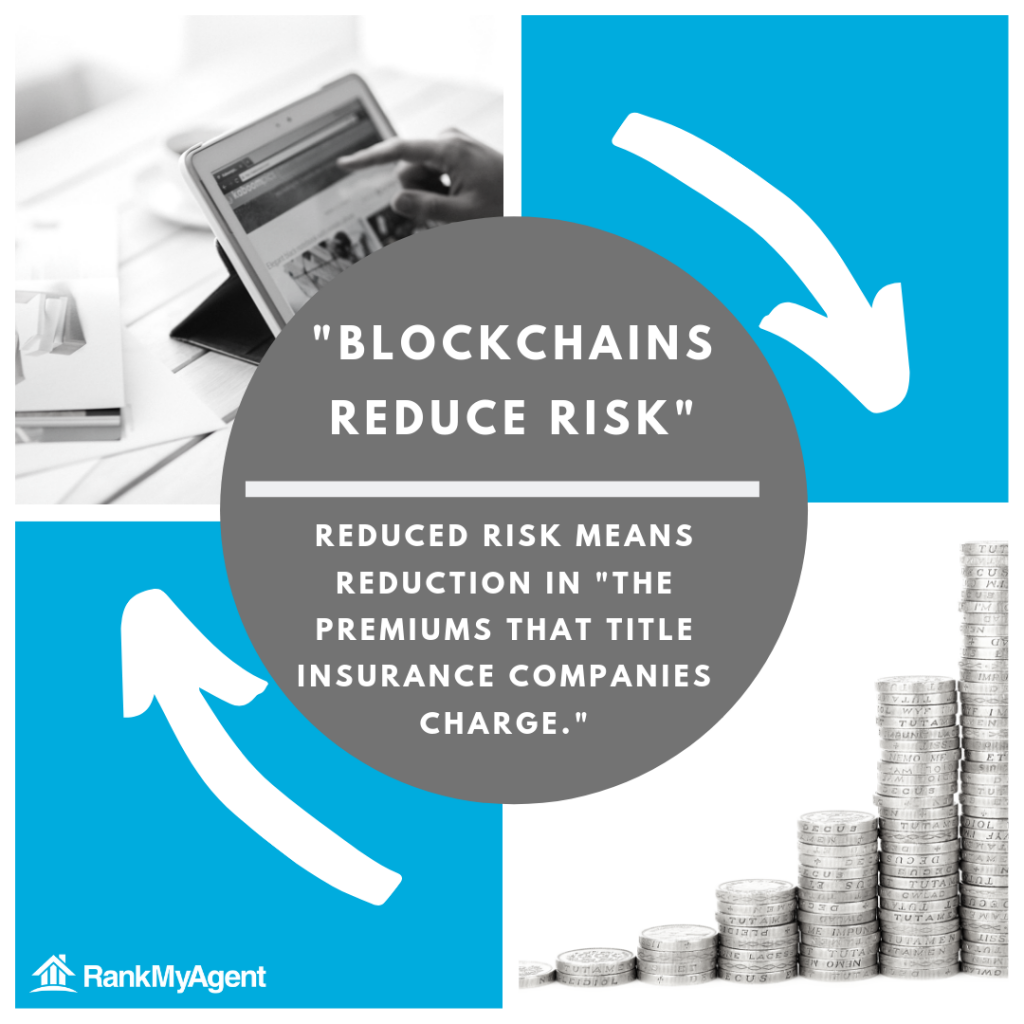The rising price and popularity of cryptocurrencies was one of 2018’s biggest stories and resulted in interest in crypto’s underlying technology: blockchain.
Blockchains are a digital database that records the transactions and tracks assets through a decentralized network. This technology can allow us to record transactions into a database owned by no central authority. Both intangible assets—like copyrights and patents— and tangible assets—like homes or cars—can be recorded in this system.
Blockchains will likely affect every industry in the coming decade and reduce the number of intermediaries that both sellers and consumers have to endure. The real estate industry is no different, and the applications of blockchains will not only make the whole transaction process more convenient but also improve how we work with contracts and title records.

Silicon Valley-based startup Propy, known as a “global property store with a decentralized title registry”, made headlines last year by facilitating a real estate deal for 10 acres of land through blockchains. Owing to the technology, the buyer and seller started and completed the deal despite being in different countries and despite never meeting in person.
Details of the transaction—such as the reservation and deed—were recorded on a blockchain so that all the stakeholders of the deal could verify it. Documents were all signed through e-signatures, and the funds and the legal needs of the deal were handled through smart contracts.
If we look a decade back, it’s unlikely any realtor would have thought a real estate deal could be made all in front of a computer. Propy now sells various residential and commercial properties in the world’s most popular cities and all online through their blockchain system. And because all the information relating to the deal is in one central location—the blockchain—it speeds up the overall process. Parts and pieces no longer go missing.
Smart contracts are likely the most significant blockchain application to affect real estate. Throughout the real estate-buying process, there are lengthy and complex legal procedures that requires intermediaries like lawyers and realtors to aid the buyer and seller.
Smart contracts is a technology that uses blockchains to facilitate and enforce the performance of a contract. It allows a smooth transaction without third parties like trustees or lawyers. Transactions are recorded on the blockchain and are irreversible. Parties cannot interfere with what was agreed upon and the agreement can only be changed with a new agreement. Information is also more secure on the blockchain, owing to its decentralization.
But a flaw with this technology is that it can only determine the completion of a contract if the task is quantitative like whether a deed was transferred or a payment was made. Smart contracts cannot execute actions with qualitative tasks like whether an area had been properly cleaned.
SMARTRealty is another startup that joins the worlds of real estate and blockchains. This company allows the creation of customizable and automated smart contracts for use in real estate transactions. Through the power of blockchains, parties are notified of breach or termination of contracts. Customization can allow compliance with local statutes, and the use of SMARTRealty ranges from the purchase and sale of a property to rentals and much more.

Smart contracts can automate the return of deposits for tenants and reduce conflict in landlord-tenant disagreements. For a purchase or sale, smart contracts can also hold funds until all the necessary documents are signed and transferred. This ultimately reduces the need for lawyers in real estate, as contracts will be less ambiguous and compliance with a contract is automated. Escrow accounts and trustees will also have a reduced function, as funds can be held in the blockchain until certain transactions are completed.
Another application of smart contracts is with mortgage payments. Mortgage payments are a quantitative action that a smart contract can consider. And if the property deed is held in the blockchain as well, the smart contract can automatically revert the ownership of a property to the lender if the borrower breaches the contract (such as a missed mortgage payment).
The issue with this arrangement is that in reality, a property is unlikely to foreclose upon the borrower breaching the mortgage contract. The lender commonly works with the borrower/homeowner to arrange a payment schedule that works for both parties. Foreclosures are used as a last resort.
Title records are often stored locally by a city or municipality. But the creation of blockchains has created a new alternative for digital storage. Blockchains can create a digital token to act as a land title and keep all the records within its database or ledger. These records are securely stored and accessible both instantaneously and globally. Buyers and sellers can reference the history of the title blockchain to see verification—eliminating the need for a lawyer to perform a title search. And the enhanced securities of blockchain storage can ultimately reduce fraud and tampering.
Because of these efficiencies, a Goldman Sachs 2016 study found that blockchains could result is $2-4 billion in savings for title insurance companies through reduced title search costs and reduced risks among other blockchain benefits. This would likely reduce the premiums that title insurance companies charge.

However, while blockchains will reduce the roles of intermediaries, the technology won’t eliminate them completely. There are factors such as bankruptcy and divorce that blockchains cannot record, and this means a lawyer or bank will have to account for it. And while title insurance companies will have less labour and risk to deal with, the insurance is still needed to cover tax and nuisance liens and municipal code violations. A full blockchain takeover of the real estate industry is still far away. A few startups have their foot in the door and there will definitely be more. It’s unknown how professionals will adapt to block chains —be it real estate professionals, lawyers, or insurance companies – trusted advisors will always be needed by the public and will be in demand.